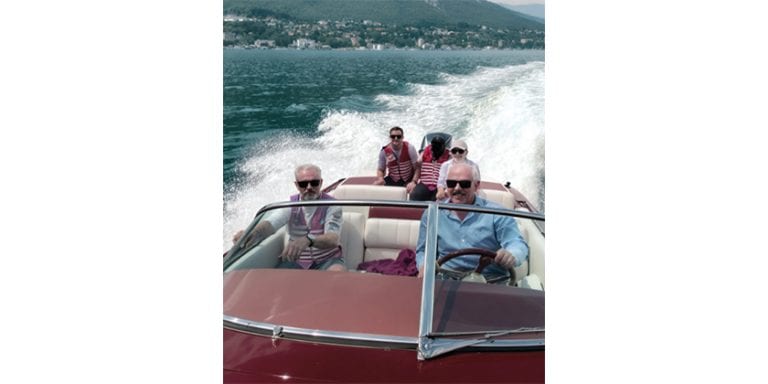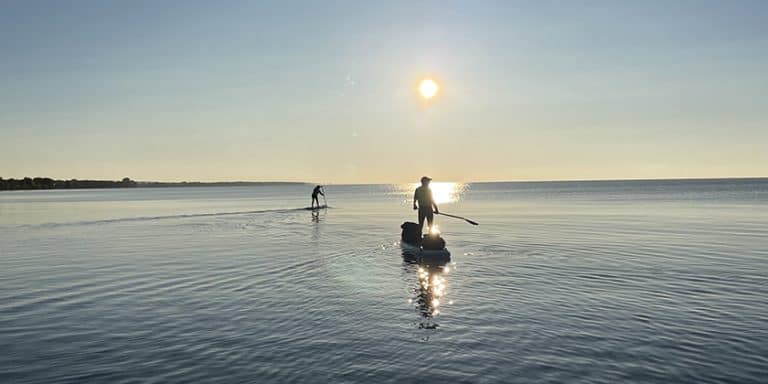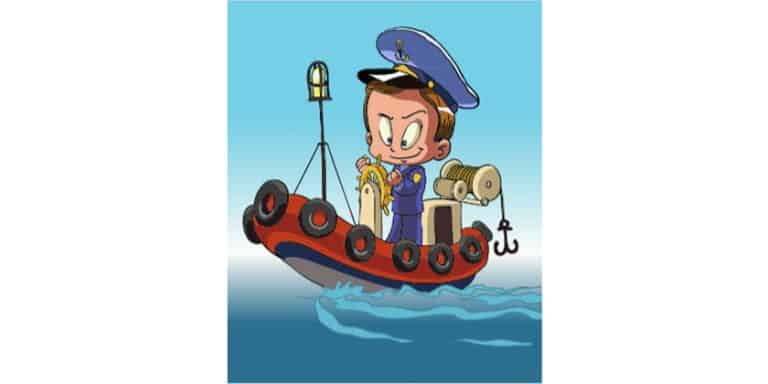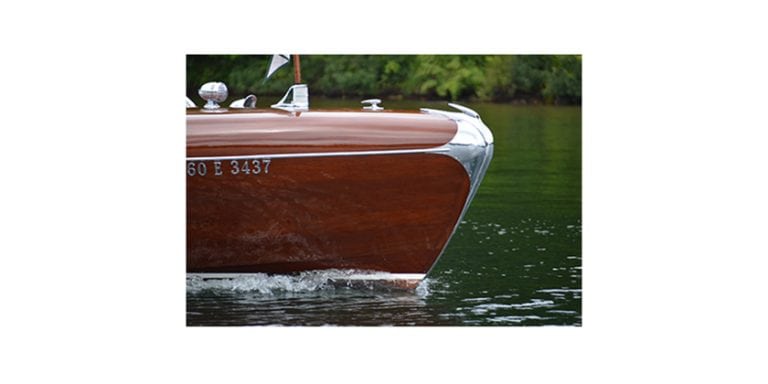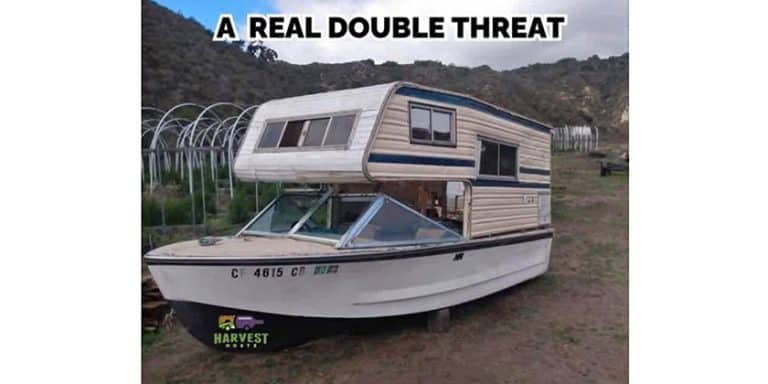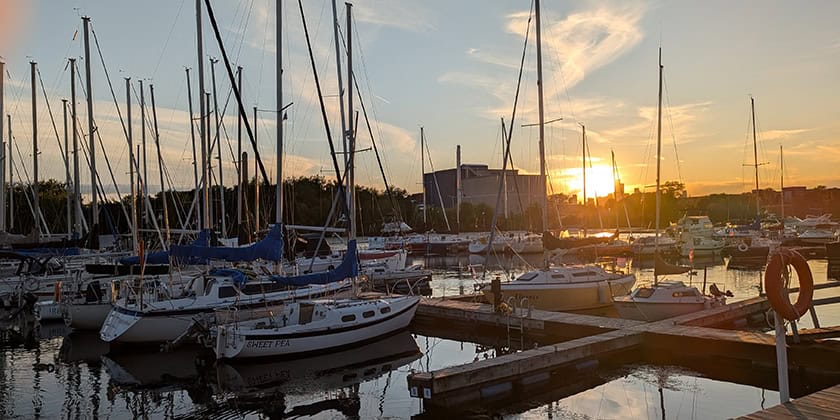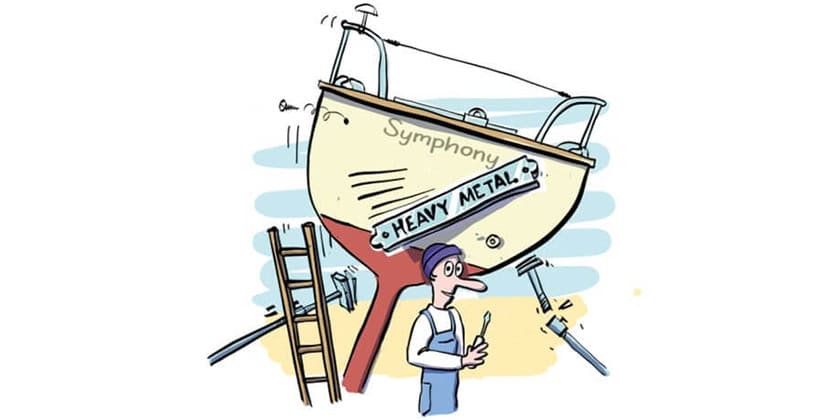Cannery Row Blog: First day on the Strait
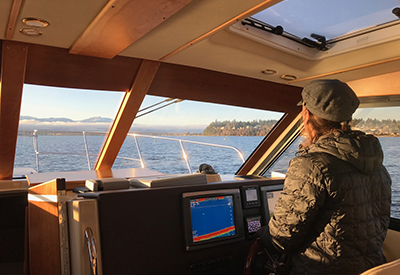
June 24, 2021
Mary at the helm
The sun came out, the wind went down, and the rain ceased. Mary and I readied ourselves to take the Cannery Row out for some practice. Before leaving for the marina, I had brushed up on the Marine Radio Operators course (probably jinxed things). Instead of staying within the shelter of the Spit, I decided to head out onto the Strait of Georgia to get a taste of what the future held for us in terms of destination cruising.
The boat handled as expected, taking a two-foot swell without difficulty. Between alternating feelings of exhilaration and panic related to the huge expanse of uncharted (for Mary and me) water that lay before us, there settled in a feeling of contentment in mastering these first few tentative steps.
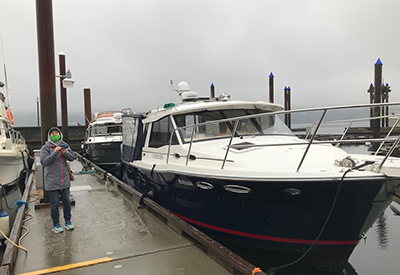 Cannery Row
Cannery Row
I thought my heart would stop beating when I heard the following words crackle from the VHF radio, which had been dutifully turned on before heading out: “Victoria Coastguard to all boaters in the vicinity of Port Holmes…paddle boarder spotted in possible distress. Attention any boat that could provide assistance”. And so, it had begun: the completion of a repetitive dream that had led me to drag out the old manual from a course I had taken some fifteen years earlier. Here I was only somewhat prepared for a most important first-time task, potentially the saving of a life.
Mary was incredulous as I pushed down on the throttle, heading toward the beach located at the entrance to the Sand Pines area, our Comox. We had been, after all, headed out for our introductory, brief cruise on the Strait. I was completely unsure as to just how to respond to the call on the radio, but convinced that I couldn’t ignore the Coast Guard request.
With some independent lip chewing, Mary and I determined that we could manage both the response as well as the radio protocol. When no one answered the possible Distress call, I went on to let them know I was about 15 min away as I struggled with reckoning a hurried course to our destination (we hadn’t yet figured out how to shift to an autopilot course), while fumbling with the radio handset. With a lump in my throat, I responded: “Victoria Coast Guard, this is the…the…Cannery Row” (I actually stumbled in identifying our boat as this was my first real life demand for the name of our creation. While we were racing to meet the demands placed on us, my conscious brain felt stuck in neutral.
Before long we were searching the coastline for the stranded paddle boarder who might still be in the water. I was experiencing considerable stress as I was negotiating this new boat for the first time on the open Strait, trying to avoid shallow areas that seemed to be everywhere I wanted to go, and looking out for my co-captain who was attempting to locate a throwing buoy.
After cruising along the coastline where several groups of bystanders were looking seaward, we felt increasingly discouraged that the paddler was nowhere in sight. After several frustrating back- and-forth radio contacts with the Coast Guard, it was finally established that the initial report to them had indicated the paddler quite a distance off shore; it had been reported to them that the paddler was seen going into the water from her board. It didn’t immediately occur to me that the mighty Coast Guard (in my mind they were god-like in their calm demeanor compared to my inner panic) had failed to inform us of this very important detail – her possible location offshore.
Pointing the boat out to sea and pushing forward on the throttle, a few minutes passed before viewing a woman standing on her board dressed only in a bathing suit and t-shirt, without wetsuit or life jacket!! Mary remembered from her past sailing experience that the temperature of the water on the Strait of Georgia would likely be in the high forties, low fifties, Fahrenheit. I didn’t immediately understand or believe this; from my scuba days, anything below 60 F would be painful and potentially life threatening very quickly.
We soon pulled alongside a young woman appearing calm and relaxed as she now straddled her paddleboard. I relayed the Coast Guard questions: “Are you alright or in distress?” and “What are your intentions?” She looked astonished that there was even a concern expressed by the Coast Guard, apparently thinking that paddling a great distance from shore, being scantily clad without a life jacket, and jumping into extremely cold water, was perfectly normal behaviour. She then indicated that she planned on paddling to shore and driving home, but seemed in no hurry to do so. We lingered briefly nearby while communicating what we had learned to the Coast Guard, feeling more and more confident in our radio skills following this unintended real life tutorial.
The time for ending our cruise came far too quickly; in this locale the sun sets at 1630 hours, only half an hour away. As Mary nursed her hand that she had bashed against the boat as I had been negotiating an increasing swell, I finished up communication with the Coast Guard and headed to port, steering around large logs that had been thrown about during the recent heavy rains.
Despite our challenges, we felt pretty content with how we had responded, and relieved since no one had been in great peril, including ourselves. As we closed up the boat, remembering to shut off this and that so the boat didn’t sink before we saw it next, we allowed that we were exhausted.
We both described aches and pains later that evening that were likely a product of stress as much as the physical exercise of unused muscles. We had a few glasses of wine, not only to mark the occasion, but to put our over-challenged brains to rest. No luck, of course. We both dreamt of future boating challenges. For my part though, I remain impressed with our performance as new boaters who didn’t drown a potential victim, screw-up on Coast Guard channel 16 radio, or sink our new floating cottage.
Dr. James Bambrick, psychologist, ret.
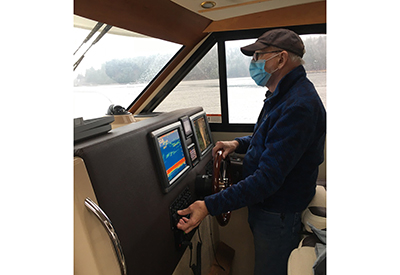
James (Jim) Bambrick has had a life-long involvement with tin boats and canoes in Ontario and scuba diving; assisting on friend’s 30 ft cruiser as well as sailing aboard 30 – 40 ft. sail boats and has been a CPS member since 2005.
Determined to operate and own a powerboat, realised when I closed my psychology practice in 2019; and moved to Comox, B.C. in 2020, two weeks ahead of the Covid shutdown.
The 2014 Cutwater 30 came up for sale in at the Port Boat House in Port Alberni; immediate love affair.

